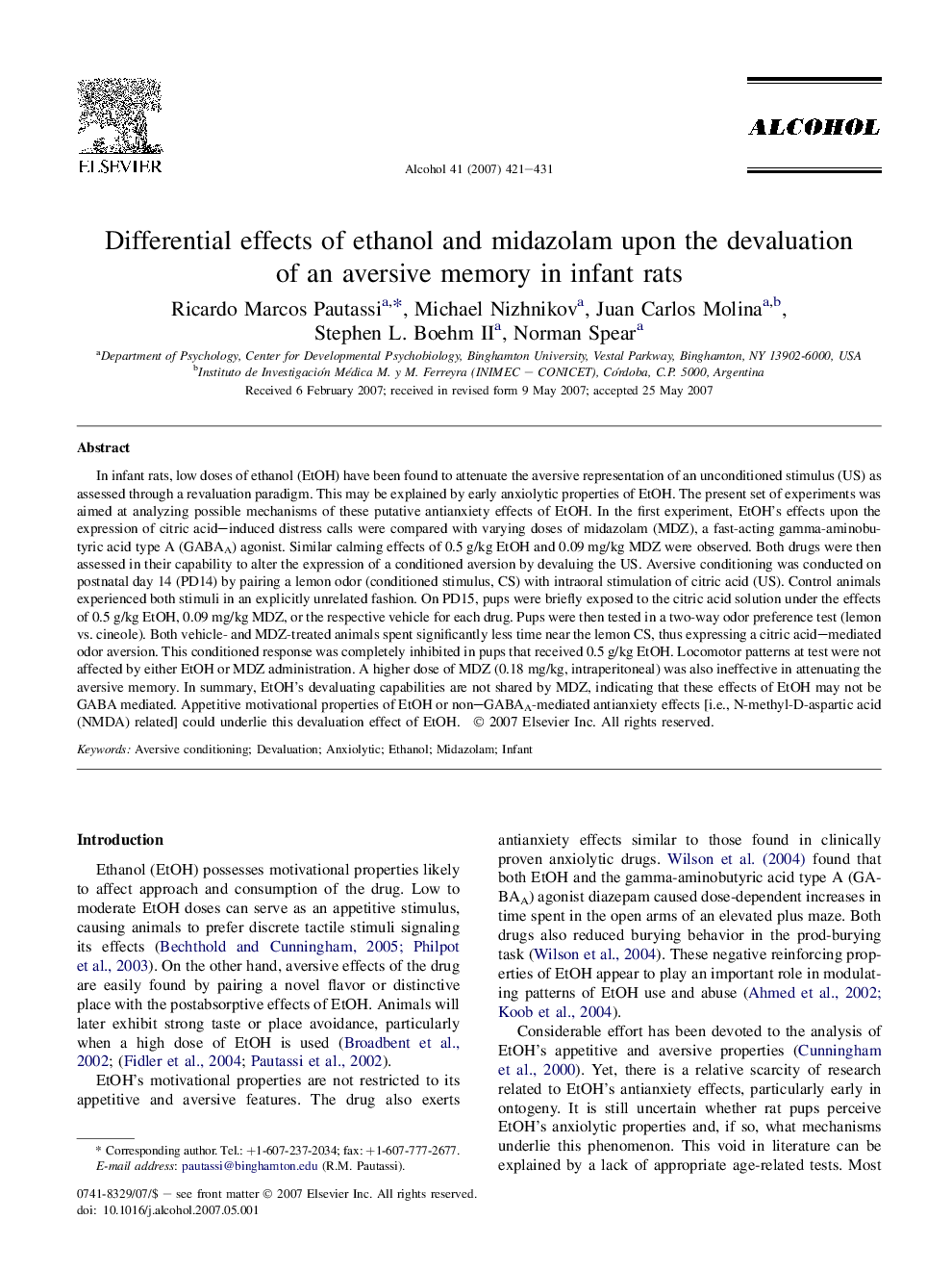| کد مقاله | کد نشریه | سال انتشار | مقاله انگلیسی | نسخه تمام متن |
|---|---|---|---|---|
| 1067956 | 948961 | 2007 | 11 صفحه PDF | دانلود رایگان |

In infant rats, low doses of ethanol (EtOH) have been found to attenuate the aversive representation of an unconditioned stimulus (US) as assessed through a revaluation paradigm. This may be explained by early anxiolytic properties of EtOH. The present set of experiments was aimed at analyzing possible mechanisms of these putative antianxiety effects of EtOH. In the first experiment, EtOH's effects upon the expression of citric acid–induced distress calls were compared with varying doses of midazolam (MDZ), a fast-acting gamma-aminobutyric acid type A (GABAA) agonist. Similar calming effects of 0.5 g/kg EtOH and 0.09 mg/kg MDZ were observed. Both drugs were then assessed in their capability to alter the expression of a conditioned aversion by devaluing the US. Aversive conditioning was conducted on postnatal day 14 (PD14) by pairing a lemon odor (conditioned stimulus, CS) with intraoral stimulation of citric acid (US). Control animals experienced both stimuli in an explicitly unrelated fashion. On PD15, pups were briefly exposed to the citric acid solution under the effects of 0.5 g/kg EtOH, 0.09 mg/kg MDZ, or the respective vehicle for each drug. Pups were then tested in a two-way odor preference test (lemon vs. cineole). Both vehicle- and MDZ-treated animals spent significantly less time near the lemon CS, thus expressing a citric acid–mediated odor aversion. This conditioned response was completely inhibited in pups that received 0.5 g/kg EtOH. Locomotor patterns at test were not affected by either EtOH or MDZ administration. A higher dose of MDZ (0.18 mg/kg, intraperitoneal) was also ineffective in attenuating the aversive memory. In summary, EtOH's devaluating capabilities are not shared by MDZ, indicating that these effects of EtOH may not be GABA mediated. Appetitive motivational properties of EtOH or non–GABAA-mediated antianxiety effects [i.e., N-methyl-D-aspartic acid (NMDA) related] could underlie this devaluation effect of EtOH.
Journal: Alcohol - Volume 41, Issue 6, September 2007, Pages 421–431